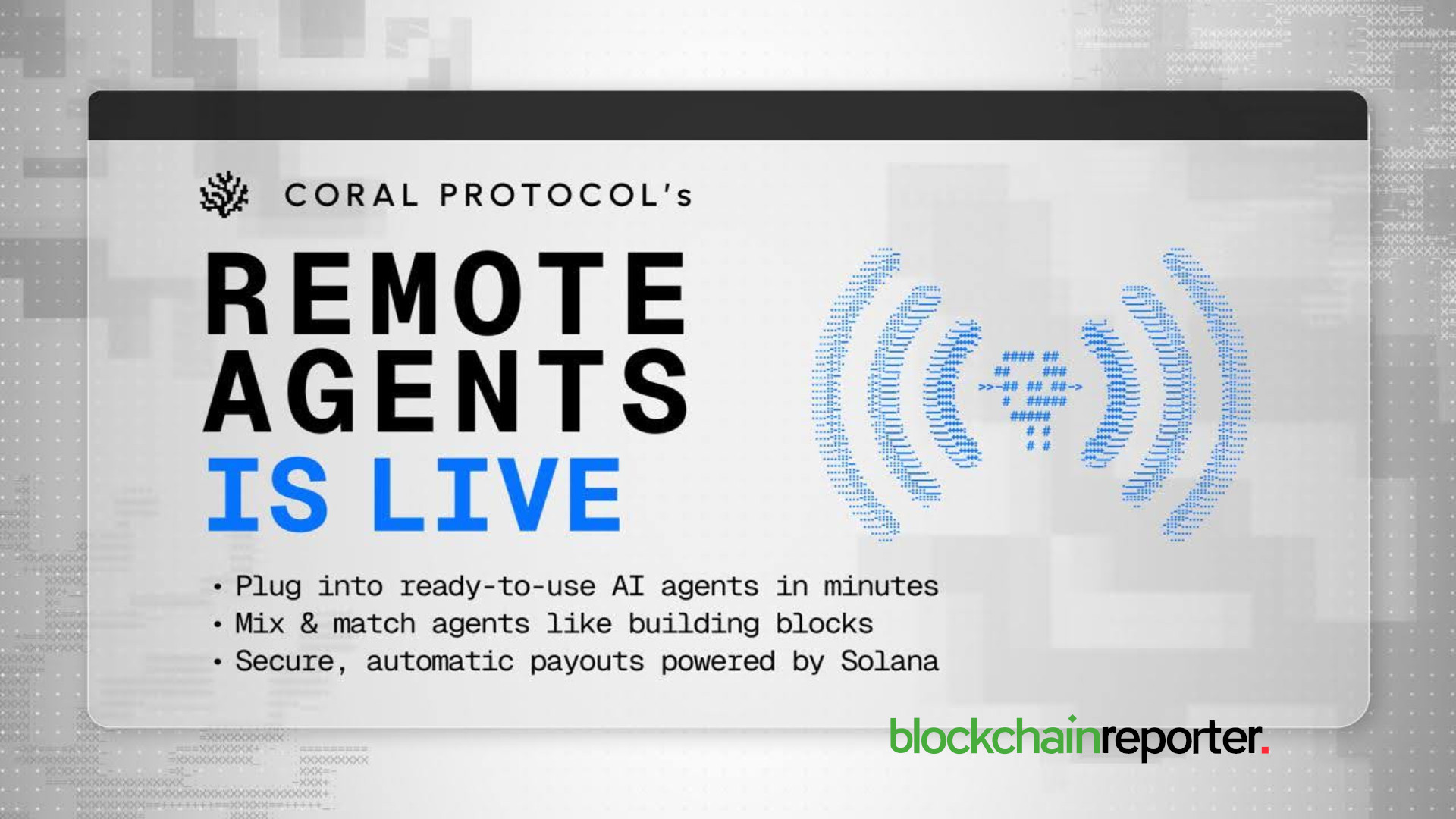Coral Protocol Releases Coral v1 With Remote Agents to Reduce Dev Time and Infrastructure Overhead



Coral Protocol today unveiled Coral v1 with Remote Agents, a production-ready system that lets developers deploy multi-agent software in minutes. The release promises to simplify how teams build, combine and monetize autonomous agents, and to do so with on-chain payments and cross-chain interoperability baked in.
Coral v1 allows developers to rent ready-to-use agents from Coral’s growing library and run them alongside their own local agents within a single session. Every decision an agent makes is tracked and optimized inside Coral Studio using threads and telemetry, giving teams visibility into agent behavior and performance while speeding iteration.
For agent creators, there’s a clear payday: developers can list agents in the Coral Registry and receive automatic payouts whenever their agents are used. Coral says the marketplace model makes it straightforward to reward creators fairly for the value their agents add.
Roman Georgio, Co-Founder & CEO of Coral Protocol , said: “The launch of Coral v1 with Remote Agents embodies everything Coral has been working towards up until now: an AI ecosystem that can accomplish virtually anything through combining distinct agents, each with their own sphere of expertise. We’re excited to see how developers harness Remote Agents to develop solutions that raise the bar in terms of what can be achieved onchain.”
Solana-Powered Transactions
Technically, v1 supports agent creation, acquisition and customization, and uses Coral’s secure on-chain payment system, powered by Solana, to settle transactions. Coral positions the feature set as especially valuable for Web3 builders who want to mix agents that specialize in different domains (for example: data retrieval, analytics, on-chain settlement) to form more capable, efficient systems.
Coral argues that Remote Agents solves several practical pain points in existing multi-agent frameworks. Rather than treating agents as simple function calls dictated by an algorithm, a model Coral says can be limiting, Remote Agents enables teams to design multi-agent workflows with an organizational structure: separate teams, defined processes and configurable rules that govern how agents interact. The company contrasts this approach with frameworks like LangChain, saying Remote Agents makes interaction rules easier to configure and reason about.
Interoperability is another focus. v1 is built to let agents operate across multiple blockchain ecosystems so they can collaborate toward shared goals without heavy engineering overhead. Coral says this reduces infrastructure demands and compression of development timelines, letting teams deploy multi-agent solutions rapidly and iterate faster.
The company frames Remote Agents as a stepping stone toward a larger vision: an open, decentralized collaboration infrastructure for “The Internet of Agents,” a world in which communication, coordination, trust and payments between autonomous systems are standard. Coral v1, Coral says, makes advanced multi-agent systems open-source, composable and ripe for wider adoption.
Coral Protocol describes itself as an open and decentralized collaboration infrastructure that enables communication, coordination, trust and payments for The Internet of Agents, laying the foundation for safe AGI. With Coral v1 with Remote Agents now live, Coral is positioning itself at the center of a nascent market for composable, monetizable agent ecosystems.

“Farewell to Westphalia” Explores Blockchain as a Model for Post-Nation-State Governance
Zug, Switzerland, 19th September 2025, Chainwire...

4 Top Crypto Presales to Invest in 2025: BlockDAG Dominates as Snorter, Maxi Doge & Bitcoin Hyper Gain Steam
Discover why BlockDAG leads the top crypto presales of 2025, while Snorter, Maxi Doge, & Bitcoin Hyp...

Best Crypto To Buy Now For Uptober Gains: Litecoin, Pepe, Solana, and A New Altcoin That Could 50x
Litecoin, Pepe, and Solana show strong Uptober setups, but Remittix stands out with $26M+ raised, CE...

